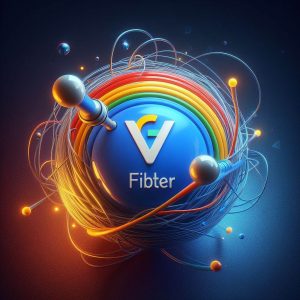A VPN, or Virtual Private Network, is an encrypted tunnel between two or more devices that allows for private, secure access to the internet and remote networks. VPNs route traffic through remote servers, masking a user’s identity and location. This allows users to bypass censorship, geographic restrictions, and access blocked content.
VPNs are especially important for ensuring safe, open internet access in countries with authoritarian regimes. By encrypting traffic and hiding identities, VPNs protect journalists, activists, and citizens who could face punishment for accessing or sharing prohibited online content. As more countries implement far-reaching surveillance and restrictive internet controls, there is a growing need for tools that preserve digital rights and liberties around the world.

II. What is Google Fiber VPN?
A. Overview of Google’s Jigsaw group
Jigsaw is an incubator within Google that focuses on addressing extremism, censorship, and cyber attacks online. The tech incubator aims to use technology, research, and partnerships to expand access to information and protect free speech online.
One of Jigsaw’s most recent projects is Outline, an open-source VPN service launched in 2018. Outline was built by Jigsaw to improve access to the open internet and help bypass state-level censorship that restricts what citizens can access online.
B. Introduction to Outline, a VPN service by Google’s Jigsaw group
Outline is a free, open-source VPN application developed by Jigsaw to provide users with secure and unrestricted access to websites and apps. The lightweight app uses enterprise-grade encryption and works on Windows, MacOS, Linux, iOS and Android devices.
Designed with security, speed, and simplicity in mind, Outline aims to make VPN technology more accessible. The app offers an easy-to-use VPN solution to encrypt traffic and bypass censorship, even if users have little technical expertise.
C. Unique features of Outline, such as transparency and open source nature
Outline has several key features that set it apart from mainstream commercial VPNs:
Open Source – As an open-source VPN, all code used in the Outline platform is publicly accessible for maximum transparency. Researchers can audit the code to ensure there are no privacy or security vulnerabilities.
User Privacy – Outline was built to operate without compromising user data or privacy. It does not collect identifying data on its users or sell data to third parties.
Bypass Censorship – A core goal of Outline is providing unfettered access to the internet by resisting censorship and geo-blocking. This allows users to access regionally restricted content.
Enterprise-Level Security – The VPN uses industry standard encryption like WireGuard and Shadowsocks to protect user traffic and anonymity online.
Speed – The app is designed to provide a fast, low-latency browsing experience for users.
III. How to Use Google Fiber VPN
A. Setting up an Outline Server
To use Outline, an administrator first needs to set up an Outline server on a host computer or virtual private server (VPS). This Outline server then handles user connections, encryption, and routing web traffic.
The host computer must have MacOS, Windows Server 2012+, or Linux to install Outline Server software. Administrators can choose from pre-made Outline server images from cloud platforms like DigitalOcean, Amazon Lightsail, Linode and more. The images come preconfigured for easy setup.
For advanced users, Outline server can also be installed from scratch on any bare metal server or VPS using Docker and YunoHost. Once installed, the server’s IP address and port need to be configured in the admin console that comes with Outline Server.
B. Accessing the VPN through the Outline Client app
Once an Outline server is deployed, users can access the VPN through Outline Client applications, available for iOS, Android, Windows and MacOS devices.
To use the VPN, users enter the Outline server’s connection details into the Outline app on their device. The app then connects and encrypts traffic through the Outline server via the secure Shadowsocks protocol.
The client app makes it fast and simple to connect to Outline servers hosted anywhere in the world – even if local networks actively block VPN traffic. Users can check their new IP address in the client to confirm they are successfully browsing via an encrypted VPN tunnel.
C. Use cases for journalists, news groups, and individuals in censored regions
Outline was created to support internet freedom and the free flow of information online. As such, it has many compelling use cases among news professionals and citizens in countries with regimes actively restricting access to information.
For journalists and news groups needing to conduct sensitive research or access blocked sites, Outline offers a way to bypass state censorship controls securely. Outline’s speed and ability to evade VPN blocking makes it well suited to these users.
For activists, civil society groups and NGOs, Outline provides enhanced privacy protections for coordinating and sharing information. By masking users’ locations and online activities from surveillance, Outline offers some safety for vulnerable groups.
For individuals in authoritarian countries who face punishment for accessing or sharing banned content, Outline gives citizens an encrypted tunnel to access and engage with the open internet without repercussions.

IV. Advantages of Google Fiber VPN
A. Resistance to blocking and censorship
A core capability of Outline is defeating censorship by using techniques like domain fronting to disguise VPN traffic as other HTTPS traffic. This allows Outline servers to consistently bypass blocking and deliver reliable access even on restrictive networks actively interfering with VPN connectivity.
The VPN can also circumvent geo-blocking restrictions to access regionally limited content from news sites, video platforms and more.
B. Increased access to the open internet, especially in authoritarian regimes
By encrypting connections and hiding user identities, Outline safely unlocks the global internet – creating workarounds so citizens can access and share information freely.
Whether facing throttling, filtering, site-blocking or complete internet shutdowns, Outline provides a portal to the open internet and a shield against tyrannical controls.
C. Comparison with traditional VPN services
Unlike most commercial VPNs, Outline places privacy protection and advancing internet freedom as central to its mission. Outline is also resistant to VPN-blocking in a way most providers struggle with.
Other key advantages include:
- Completely open-source code for transparency
- User privacy preserved (no data harvesting)
- Globally available free of charge
- Easy to deploy and manage for admins
- Intuitive cross-platform apps for end-users
With competitive speed, security, and usability, Outline matches top tier commercial VPNs while upholding stronger commitments to ethics, digital rights and accessibility.

A. Summary of the benefits of using Google Fiber VPN
Google’s Jigsaw incubator developed Outline, an open-source VPN service, to expand uncensored internet access and online privacy protections worldwide. Outline provides a fast, secure, and easy-to-use tunnel to the open web by encrypting traffic and hiding users’ locations and identities.
Key advantages include bypassing censorship, geo-blocking and VPN interference while delivering enterprise-grade encryption. For journalists, activists, NGOs and oppressed citizens facing surveillance and restricted internet access, Outline offers safer connectivity.
As an ethical, non-commercial solution focused on internet freedom over profits, Outline stands apart from most VPN providers. The transparent open-source platform gives users and experts confidence in its privacy protections and security capabilities as well.
B. Future implications and developments in the field of DIY VPN services
Outline and similar open-source VPN solutions are empowering a wave of DIY VPN deployments among tech savvy groups and server administrators worldwide. Expanding access to self-hosted VPN technologies has game-changing implications for resisting state censorship globally in the years ahead.
As more customizable VPN solutions emerge, supporting features like offline access, pluggable transports protocols, and E2E encryption, they will become harder for regimes to effectively block. With these rapid innovations,Outline and the next generation of decentralized VPN networks are poised to profoundly shift the global battle for internet freedom going forward.